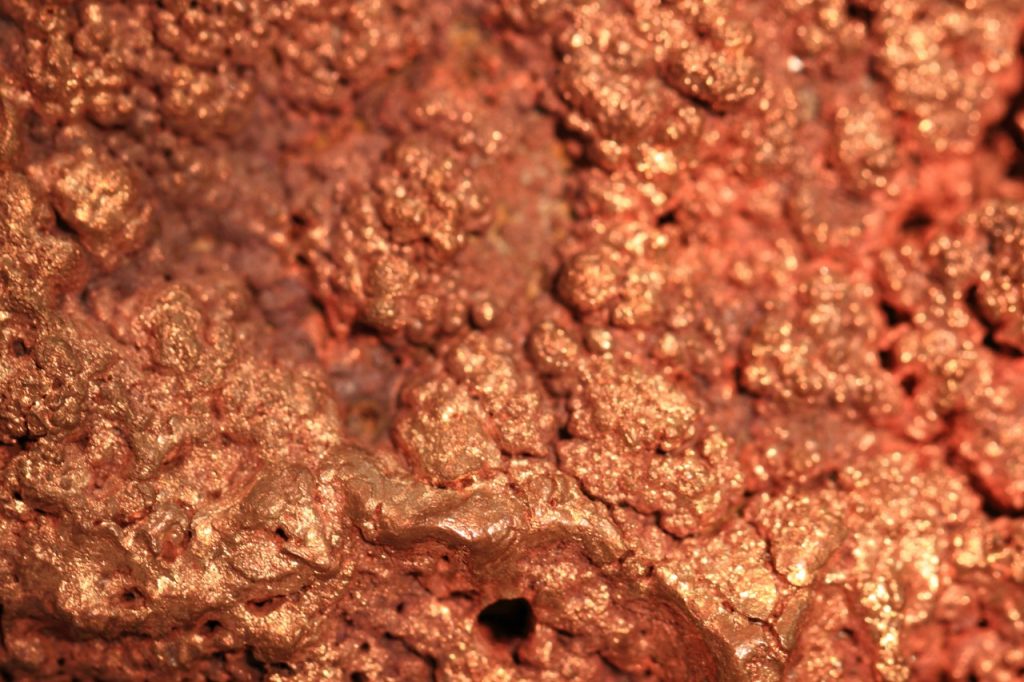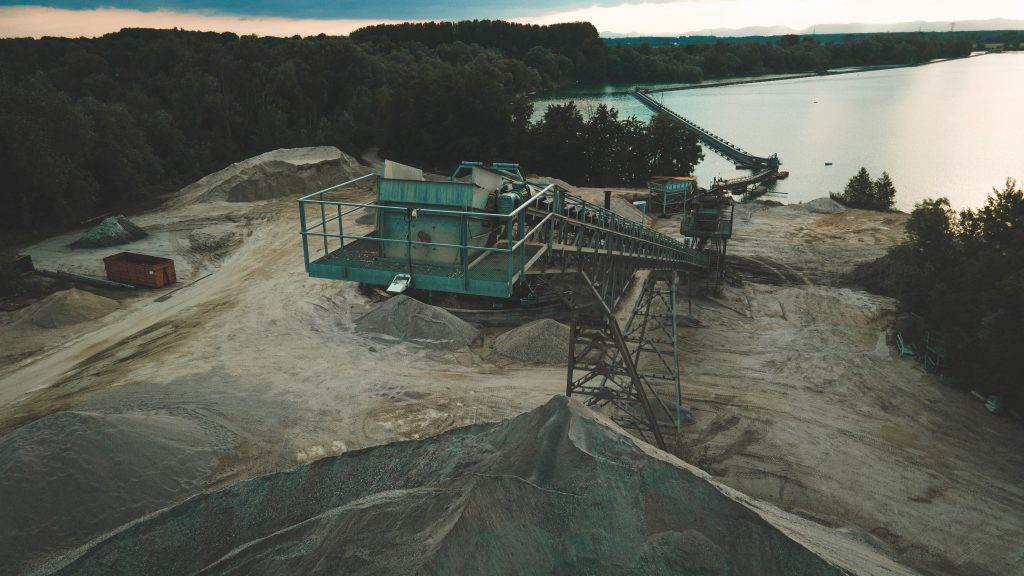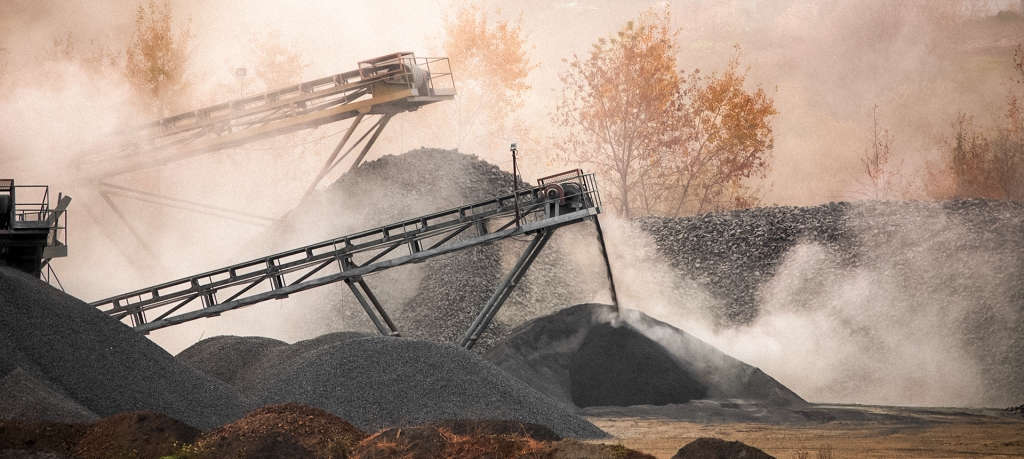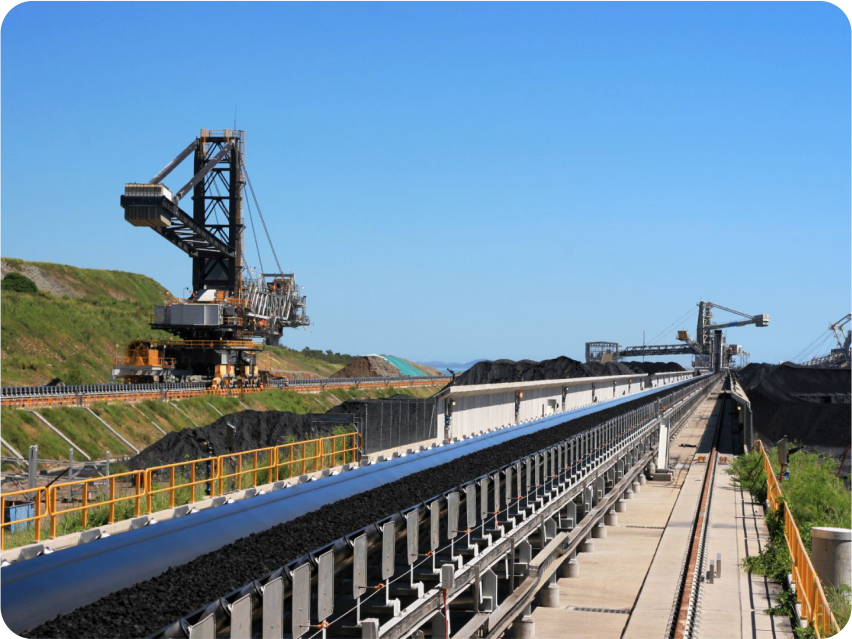
Copper ore: used in the generation and transmission of electricity and electronic equipment, it is the 3rd most consumed ore in the world and has a high abrasive rate.
Just behind iron and aluminum, copper is one of the metals used the most in the world and is very common in power generation and transmission in addition to being present in virtually all electronic equipment.
It was in the city of Marabá in the southeast region of the state of Pará that one of the most important copper mines in the country, a subsidiary of the largest mining company in Brazil, contacted Mercurio requesting a conveyor belt that would be resistant enough to carry a very important ore.
At the end of 2018, on one of their visits to this important client, Alexandre Lacerda, Accounts Manager at that time, and Fernando Assis, then Coordinator of Mercurio’s Application Engineering and Technical Assistance Area, were received by the mine’s Engineering team with a special request: to increase the service life of a conveyor belt.
But it wasn’t just any conveyor belt.
The TR 2010-01 is an enclosed and reversible conveyor (operating in both directions) that is responsible for driving the plant’s entire production process and its stopping would imply in a general downtime for the plant, including machinery and personnel, which meant a direct impact on production.
This was a challenge that required a joint effort between Mercurio’s Engineering and Technical Assistance and Sales areas to find at the same time the best technical solution for the case at a cost and within a deadline to meet the customer’s needs.
Due to the nature of copper, its high abrasiveness would wear the conveyor belt down faster, especially its cover, after around three months. The Mining Company’s General Downtime was scheduled based on that, causing the remaining machines to also have to undergo reviews and changes, even being under good working conditions.
“Considering Conveyors and Belt Feeders, there are approximately 50 pieces of equipment affected with the downtime of this Conveyor Belt. We asked for the support of Mercurio’s technical team to come up with a solution that would increase the useful life of the equipment and with that extend the period between the scheduled downtimes,” recalls Renato Caverzan, the Engineer responsible for the mining company’s conveyor belts.
Analysis and diagnosis of the belt conveyors
“Our challenge was to find a solution that would increase the service life of the belt and consequently reduce the plant’s number of annual downtimes without resulting in more costs for the customer,” explains Fernando Assis.
Based on a technical report prepared with the use of ultrasound, the team mapped the wear on the upper cover. Seventeen points were mapped transversally covering the entire width of the belt, which made it possible to determine and design its service life.
The conveyor belt’s durability as to resistance to abrasion has a direct relationship with its thickness, the type of cover, and the type of material to be transported.
Engineering analyses were performed using the information revealed from the ultrasound to propose the necessary changes to increase the service life of the belt with specifications CT EAS 5EP4000, a heavy model with five Nylon-Polyester plies and an EAS cover with a maximum abrasion resistance of 70 mm3.
Assis remembers that “because of the very abrasive nature of the material, we knew the initial need was to change the cover to a type that would offer greater resistance to abrasion, but an increase in the thickness of the upper cover would of course have an impact on the increase of mass (weight), requiring greater drive power”. So, to prevent this wear on the belt, Mercurio’s team conducted a study of the tensions at play to then consider making changes to the carcass, reducing its weight to later increase the thickness of the cover.
After considering all the possibilities raised, the Mercurio team presented to the customer a solution that, according to the tests carried out in the company’s lab, could increase the service life of the ore conveyor belt: a much more resistant new cover, the XEAS (X Extra Abrasion Super), combined with a new type of carcass, the 4EP4000.
“In practice, we greatly increased the abrasion resistance of the upper cover that went from 70 mm3 to 30 mm3. We also increased the thickness from 12 mm to 18 mm, an increase of 50%, and we removed one layer of textile from the carcass, which represents a reduction of 2 kg/m2,” he explains.
Efficient and cost-effective solution with a customized cover and carcass
After the last change done in 2019 and already under the new specification, the customer was able to notice the increase in the conveyor belt’s service life from 3 to nearly 5 months, which is even longer than the 4 months initially expected. This implied in a decrease from four to less than three Annual Scheduled Downtimes, representing a significant gain of more than 33% in the belt’s service life.
“We stopped to make the last change already with the new specification on September 15, 2019 and only had to stop again on February 3, 2020, so that is almost 5 months of service life. And the belt even looked like it could run for about another month,” pointed out Caverzan.
Also according to the customer, as the downtime for the conveyor belt TR 2010-01 was responsible for the plant’s quarterly maintenance shutdown, and this change was fundamental to generate better results and brought savings with maintenance expenses in addition to reducing the exposure of employees to safety risks. “And it was all done with great agility. The proximity of the Marabá factory and the attention of Mercurio’s entire team further facilitated the operation, the logistics of change, and all the support needed,” said Daniel Tovar, the customer’s Maintenance Engineer.
An efficient and economical solution that was not only directly responsible for increasing the company’s plant productivity, but also for the adjustments in the belt’s specification were made without the need for major changes in equipment and thus without needing major investments.
“It is always a pleasure to participate in challenges of this kind. We would like to thank Engineer Renato Caverzan, who is responsible for the Conveyor Belts, for challenging us with this improvement and for the great result achieved with our products,” adds Alexandre Lacerda, the Account Manager at Mercurio.
“Without a doubt it is a clear success case recognized for both the strategic importance of the equipment and the size of the company. And the positive outcome could only be achieved thanks to the partnership and joint effort between the customer and Mercurio,” concludes Fernando Assis.


